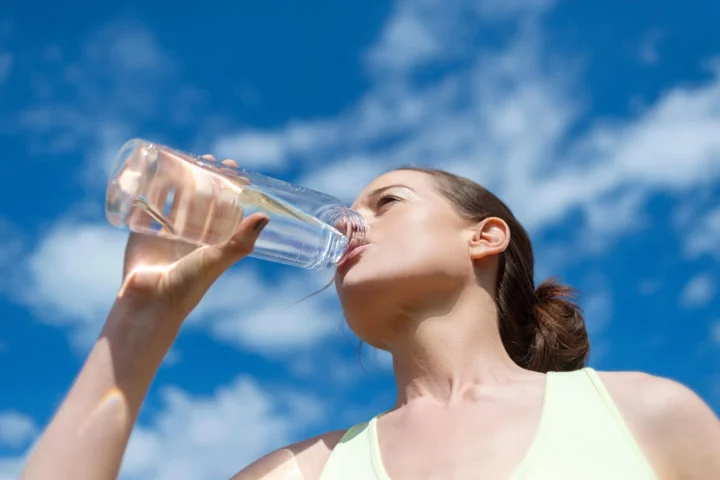
What happens if you don’t wash your water bottle often enough?
Reusable water bottles are beneficial in so many ways. Helping keep you hydrated, they also cut down on single-use plastic, and save you money every time you refill instead of buying a new bottle of water. Plus, with all the chic stainless steel flasks and glass bottles on the market – not to mention sporty carrying straps – they’ve become something of a fashion accessory. Trying to hit the NHS-recommended eight glasses of water a day for adults is an excellent idea, of course, but did you know there’s one way your refillable bottle could potentially be detrimental to your health? According to a study from waterfilterguru.com, reusable water bottles contain an average of 20.8m colony-forming units (CFUs) of bacteria, which equates to 40,000 times more than the microbes on a toilet seat. So what might be the consequences if you continuously sip and refill without washing your bottle properly between uses? We asked health experts to talk through the risks… Bottling up bacteria “A common misconception when it comes to reusable water bottle hygiene is that as you’re typically filling it with pure water and it’s only coming into contact with your own mouth, there’s little need to clean it often,” says Dr Donald Grant, senior clinician at The Independent Pharmacy. However, every time you drink from the bottle, you’re transferring bacteria from your mouth, which can then multiply in the container. “Anything that is reusable can be prone to accumulating dirt, dust or debris and, as a result, bacteria,” says private GP Dr Suhail Hussain. “This is exacerbated by the fact water bottles are the ideal environment for harbouring bacteria due to being moist.” Hard to reach crevices – for example, inside a screw top or under a flip-up straw – could also develop mould, and then there’s contamination from other sources. “When you store it in a gym bag, for instance, it can pick up bacteria from the interior of the bag or anything else stored in it, while you can also transfer bacteria from your hands to your bottle,” says Grant. “If your bottle has a valve cap, you may need to lift or twist it with your fingers, and this can transfer bacteria you may have picked up from touching other objects or surfaces.” What types of microbes are found in water bottles? “These might be simple commensals such as streptococcus and staphylococcus, which normally live in symbiosis with their host (i.e. us) but can become problematic if they accumulate, or the individual is under the weather,” Hussain says.“Bacteria such as E. coli – a common cause of urine and bowel infections – can often colonise the water bottle following repeated handling, such as taking the cap on and off.” These bacteria can potentially cause a variety of issues. “You may become sick and develop gastric illness, such as diarrhoea or vomiting,” Hussain continues. “Gram negative rods – another common bacterium found in unwashed bottles – can lead to urogenital tract infections and pneumonia.” Grant warns: “If there’s a build-up of mould inside the bottle, this can cause allergy symptoms, such as a runny nose, sneezing, or red and itchy eyes. Symptoms might be more severe for someone with asthma.” How often should you wash your reusable water bottle? “To minimise your risk of getting sick, you should ideally clean your water bottle after each use,” Grant says. “As a minimum, you should aim to wash it thoroughly at least a few times a week.” Hot water and washing up liquid are all you need to banish bacteria on the daily. “Fill the bottle with hot soapy mixture and swill around, or leave to soak in a detergent mixture,” Hussain advises. “Remember to pay special attention to lids/caps and screw top regions – use a clean brush [to scrub them].” If you’ve neglected your bottle for a few days and it needs a deeper clean, Grant suggests: “Soak your bottle overnight in a solution of half vinegar and half water. Rinse the bottle and let it dry fully before using it again.” Storage is also important to help minimise nasty microbes. “Where possible, you should keep your water bottle out of germ-rich environments such as your gym locker or sports bag,” Grant says. “You should also avoid filling your bottle with anything other than water, such as protein shakes, energy drinks, or sugar-rich liquids, as sugar can stimulate the growth of bacteria.” Hussain adds: “Don’t leave water bottle in the sun for long periods of time or siting in the cup holder in the car – the mixture of warmth and moisture is likely to make bacterial overgrowth worse.” Read More Charity boss speaks out over ‘traumatic’ encounter with royal aide Ukraine war’s heaviest fight rages in east - follow live Prince George visits Eton with parents Prince William and Kate Middleton King Charles and Queen Camilla ecstatic after getting their first Royal Ascot winner As Elon Musk calls cis ‘a slur’ – what does the term cisgender actually mean?
2023-06-23 15:18

6 hacks for handling the heatwave at a festival
With the heatwave stretching on this summer, festival-goers may be worried about handling the hot temperatures. The medical team at the Isle of Wight Festival said they saw fewer heat-related issues than expected, but there has still been a 15% rise in incidents since last year. With Glastonbury temperatures predicted to fall between 21 and 25 degrees, how can you make sure you stay safe? 1. Find shade – anywhere on the site When you see photos and videos of festival sites, it can look pretty exposed to the elements. “At festivals, seek shade in festival tents or near stages, or by going to bars… Even take a gazebo to go with your tent [if the festival allows],” says associate medical director of St John Ambulance, David Monk. When out in the field, take an umbrella or parasol if you are worried, Monk explains. And also, consider “wearing light layers and a cap”, he says. “Perhaps take a wet cloth to pop on the back of your neck, or wet the cap and wear it to cool you.” 2. Put sun cream everywhere “Make sure you wear a good head covering, at least SPF 30, and reapply regularly, so take it into the festival with you. When you get sweaty, it will need reapplying,” Monk explains. If you are dressing up in wild clothing, “apply sun cream before putting it on and reapply it, and make sure you take something to wear when it starts getting cooler”, he explains. “Put sun cream under make-up and glitter, and look at a sun cream spray for your scalp” – especially important if you don’t want to wear a hat. 3. Know what to look out for Knowing the signs of heatstroke and severe burns is vital. The main risks are sunburn, heatstroke and heat exhaustion. “Heat exhaustion is something you can self-treat by drinking lots of water or weak squash, and eating salty foods. If you think you have heatstroke, however, seek help from the medical teams,” Monk says. Signs include not sweating despite being hot, and a reduced level of consciousness, he adds. “If you get burnt, think how bad it is. If it blisters, you feel unwell or are shivering, seek help from the festival medical teams.” They should be fairly easy to find and signposted – ask around if you can’t see any. However, if it is less severe, just do lots of moisturising and rehydrating, he suggests. 4. Drink water and know how hydrated you are “Drink alcohol in moderation, and drink water alongside it. When you go to the loo, check how dark your urine is,” Monk suggests. This isn’t always possible in festival toilets, but you might detect darker and more dehydrated urine from its smell. 5. Pack the electrolytes When you sweat, you lose a lot of electrolytes, like salt. “Take an electrolyte drink with you – things like sports drinks, or Dioralyte, to replace whatever you lose,” says Monk. “Make sure you’re eating things with salt in, and carbohydrates, to give you energy.” 6. Keep an eye on drink and drugs “If people are going to take drugs, make sure those around you know what you have taken, in case they need to tell someone if there is a problem. Drugs and alcohol reduce your body’s ability to respond to the heat,” says Monk. Read More Charity boss speaks out over ‘traumatic’ encounter with royal aide Ukraine war’s heaviest fight rages in east - follow live Regular daytime naps could be good for the brain, study shows Meghan ‘set to sign’ Dior deal: 4 times she’s worn the brand Designer JW Anderson wears Irish rugby top on the runway
2023-06-20 14:45
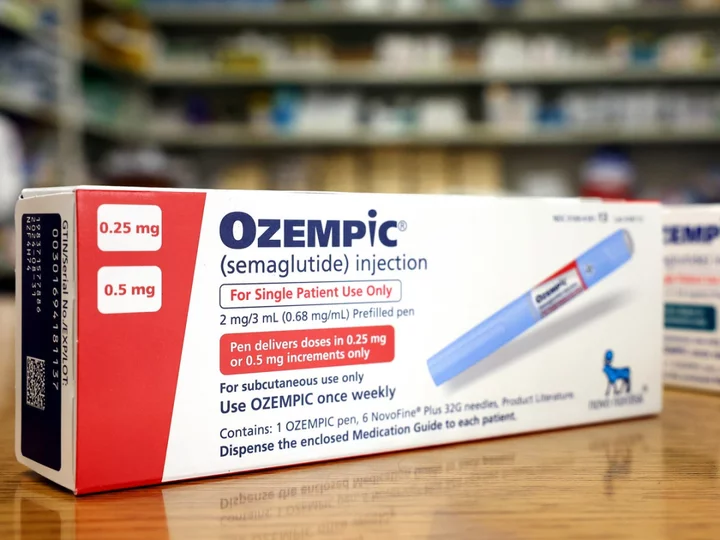
Scientist behind Ozempic says drug can make life ‘so miserably boring’
One of the scientists whose work pioneered the development of medications such as Ozempic and Wegovy has revealed why life may become “so miserably boring” after two years of using the drug. Ozempic is an FDA-approved medication used for the treatment of type 2 diabetes. It works by mimicking a hormone called glucagon-like peptide 1 (GLP-1), which regulates blood sugar levels and slows down the rate at which food leaves the stomach, often creating the feeling of fullness. These semaglutide injections – sold under the brand names Ozempic and Wegovy – have soared in popularity as many people, including Hollywood celebrities, have used it for weight loss. What’s more, people have also found Ozempic has been effective in curing their addictive habits, like drinking, smoking, shopping, or nail biting. However, because of Ozempic’s increasing popularity, it has led to national shortages of the type 2 diabetes treatment – leaving those who actually need it without. In an interview with Wired, professor Jens Juul Holst – who received the Warren Alpert Foundation Prize in 2021 for his work developing treatments based on the GLP-1 hormone – spoke about the effects of Ozempic, and why he believes many people will stop taking the medication after just a few years. “What happens is that you lose your appetite and also the pleasure of eating, and so I think there’s a price to be paid when you do that,” Holst told Wired. “If you like food, then that pleasure is gone. The craving for food for some people is taken away when they take GLP-1 drugs.” He continued: “That may eventually be a problem, that once you’ve been on this for a year or two, life is so miserably boring that you can’t stand it any longer and you have to go back to your old life.” Holst added that medications like Ozempic and Wegovy have been on the market since 2005, though studies show that these people don’t stay on them for very long. “It’s just like every other drug, they don’t stay on it for many reasons,” he explained. “One of the reasons, as I said, is that once you have tried it and you realise you’ve lost interest in food, then that may be enough.” “We don’t know why people stop taking these drugs, but we know for a fact that they do stop. They do that all over the world.” A 2020 study found that 70 per cent of people who took GLP-1 drugs for type 2 diabetes stopped taking them within two years. However, this could pose a problem for many patients taking semaglutide injections. Research has found that people who stopped taking Ozempic or Wegovy for weight loss experienced weight rebound. A trial published in April 2022 saw participants gain back two thirds of the weight they had lost after 68 weeks of taking semaglutide. As for celebrities who use the once-weekly injection for weight loss, despite not having diabetes or clinical obesity, Hans instead called attention to the “many terrible problems” that those with diabetes have struggled with by not having drugs like Ozempic readily available. “Have you ever visited a diabetes hospital? It’s really deplorable,” he said. “People come in with amputated limbs and compromised cognitive functions and heart problems or they can barely move – they’re miserable and depressed. It’s really serious. There is so much you can improve with a drug that is not only a weight-loss drug but is also an anti-diabetic.” Amidst the popularity of semaglutide injections, the US Food and Drug Administration has issued warnings for consumers not to use off-brand versions of Ozempic or Wegovy, because they may not include the same GLP-1 hormone used in approved medications. Earlier this month, agency officials reported problems with patients using compounded versions of semaglutide – which combines traditional semaglutide with other ingredients. These drugs are not FDA-approved, and the agency does not verify the safety or effectiveness of compounded drugs. Consumers should only use drugs containing semaglutide with a prescription from a licensed health care provider and obtained from a state-licensed pharmacy or other facilities registered with the FDA, the agency said. Read More What is ‘Ozempic face’? Doctors warn about facial ageing side effect of diabetes medications How does Wegovy work? The ‘game changing’ weight loss drug beloved by Hollywood FDA warns against using off-brand versions of Ozempic, Wegovy for weight loss Pregnant Stassi Schroeder admits she wants to ‘try’ Ozempic after giving birth Doctors warn about ‘Ozempic face’ side effect of medications Amy Schumer says she stopped taking Ozempic because of side-effects
2023-06-16 23:52
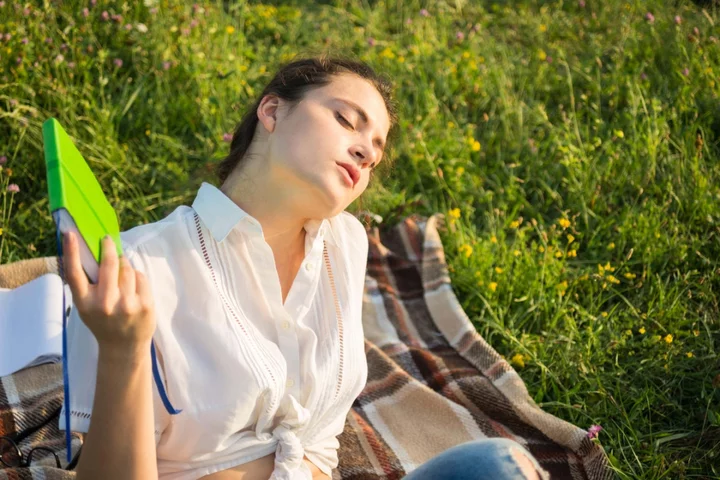
Why do we get so tired in hot weather?
Does very hot weather leave you feeling more exhausted and lethargic than usual? There might be an initial surge of joy when the sun finally comes out – but once temperatures really creep up, we can end up feeling physically drained, wondering whether we should follow the Mediterranean’s lead and start introducing daily siestas. So, why does hot weather make us so tired? We asked a doctor to explain… Our bodies have to work harder in the heat “When the weather is hot, our bodies have to work harder to cool themselves down,” says Dr Zulqarnain Shah, medical director at SSP Health and GP at SSP Health practice Colne Road Surgery. “The body’s natural cooling mechanism involves increasing blood circulation near the skin’s surface and promoting sweat production. These physiological changes can lead to fatigue and a feeling of lethargy. It is essential to recognise that this fatigue is a normal response to heat and is typically temporary.” Dehydration Low energy and tiredness are also common when you’re lacking hydration. “Hot weather increases the rate of fluid loss through sweating, leading to dehydration. Dehydration can contribute to fatigue and make you feel even more lethargic,” adds Dr Shah. “To avoid this, it’s important to stay adequately hydrated by drinking plenty of fluids, especially water. Aim to drink even when you’re not feeling thirsty, as thirst is not always an accurate indicator of dehydration.” Heat exhaustion “Prolonged exposure to heat can result in heat exhaustion, a condition characterised by symptoms such as heavy sweating, weakness, dizziness, nausea, headache, and muscle cramps. If you experience these warning signs, it’s crucial to move to a cooler environment, drink fluids, and rest. If symptoms persist or worsen, seek medical attention promptly,” says Shah. It’s important to pay attention to warning signs, as if heat stroke develops, this is a medical emergency. Shah stresses: “Heat stroke is a severe and potentially life-threatening condition that requires immediate medical intervention. It occurs when the body’s temperature regulation fails, and the core temperature rises dangerously high. “Symptoms may include a high body temperature (above 39.4C), altered mental state, confusion, rapid breathing, rapid heartbeat, and even loss of consciousness. If you suspect heat stroke, call emergency services immediately.” Sleep deprivation The extra tiredness could also be linked to poor sleep, as this can really suffer in the heat. “Hot temperatures can disrupt sleep and lead to poor sleep quality. The body needs to cool down to initiate sleep, and the excessive heat can make it difficult to reach the optimal sleep temperature,” explains Shah. “To improve sleep in hot weather, consider using fans or air conditioning, wearing lightweight and breathable sleepwear, keeping your bedroom well-ventilated, and using lighter bedding.” Pre-existing conditions could get worse Many people living with chronic or long-term health conditions deal with fatigue, which may flare up during heatwaves. “Hot weather can exacerbate symptoms and increase fatigue in individuals with certain chronic health conditions. Conditions such as heart disease, kidney problems, and respiratory issues can be particularly sensitive to heat,” notes Shah. “It’s vital to be aware of your specific health condition and consult with your healthcare provider for personalised advice on managing your symptoms during hot weather. They may recommend staying in cooler environments, adjusting medications, or monitoring your fluid intake more closely.” Read More Airbnb customer furious after being charged extra over dog hair People seek hay fever advice once every three seconds, says NHS England Why is my hay fever so bad at the moment?
2023-06-16 20:18
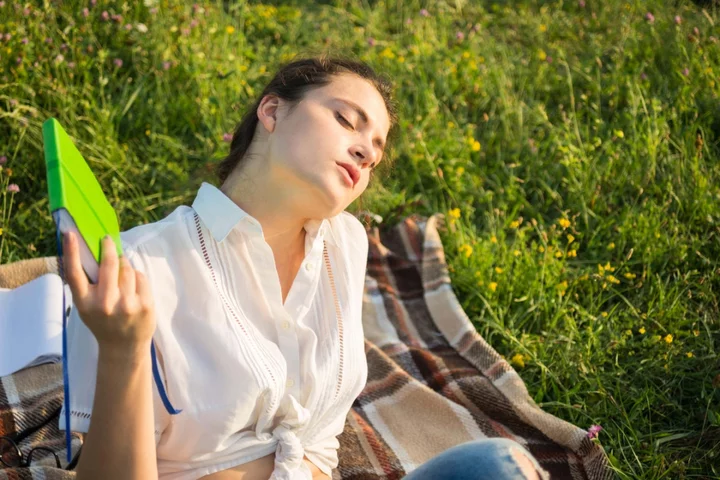
Why am I so lethargic in the heat?
Does very hot weather leave you feeling more exhausted and lethargic than usual? There might be an initial surge of joy when the sun finally comes out – but once temperatures really creep up, we can end up feeling physically drained, wondering whether we should follow the Mediterranean’s lead and start introducing daily siestas. So, why does hot weather make us so tired? We asked a doctor to explain… Bodies have to work harder in the heat“When the weather is hot, our bodies have to work harder to cool themselves down,” says Dr Zulqarnain Shah, medical director at SSP Health and GP at SSP Health practice Colne Road Surgery. “The body’s natural cooling mechanism involves increasing blood circulation near the skin’s surface and promoting sweat production. These physiological changes can lead to fatigue and a feeling of lethargy. It is essential to recognise that this fatigue is a normal response to heat and is typically temporary.” Dehydration Low energy and tiredness are also common when you’re lacking hydration. “Hot weather increases the rate of fluid loss through sweating, leading to dehydration. Dehydration can contribute to fatigue and make you feel even more lethargic,” adds Dr Shah. “To avoid this, it’s important to stay adequately hydrated by drinking plenty of fluids, especially water. Aim to drink even when you’re not feeling thirsty, as thirst is not always an accurate indicator of dehydration.” Heat exhaustion “Prolonged exposure to heat can result in heat exhaustion, a condition characterised by symptoms such as heavy sweating, weakness, dizziness, nausea, headache, and muscle cramps. If you experience these warning signs, it’s crucial to move to a cooler environment, drink fluids, and rest. If symptoms persist or worsen, seek medical attention promptly,” says Shah. It’s important to pay attention to warning signs, as if heat stroke develops, this is a medical emergency. Shah stresses: “Heat stroke is a severe and potentially life-threatening condition that requires immediate medical intervention. It occurs when the body’s temperature regulation fails, and the core temperature rises dangerously high. “Symptoms may include a high body temperature (above 39.4°C), altered mental state, confusion, rapid breathing, rapid heartbeat, and even loss of consciousness. If you suspect heat stroke, call emergency services immediately.” Sleep deprivation The extra tiredness could also be linked to poor sleep, as this can really suffer in the heat. “Hot temperatures can disrupt sleep and lead to poor sleep quality. The body needs to cool down to initiate sleep, and excessive heat can make it difficult to reach the optimal sleep temperature,” explains Shah. “To improve sleep in hot weather, consider using fans or air conditioning, wearing lightweight and breathable sleepwear, keeping your bedroom well-ventilated, and using lighter bedding.” Pre-existing conditions could get worse Many people living with chronic or long-term health conditions deal with fatigue – which may flare up during heatwaves. “Hot weather can exacerbate symptoms and increase fatigue in individuals with certain chronic health conditions. Conditions such as heart disease, kidney problems, and respiratory issues can be particularly sensitive to heat,” notes Shah. “It’s vital to be aware of your specific health condition and consult with your healthcare provider for personalised advice on managing your symptoms during hot weather. They may recommend staying in cooler environments, adjusting medications, or monitoring your fluid intake more closely.” Read More Charity boss speaks out over ‘traumatic’ encounter with royal aide Ukraine war’s heaviest fight rages in east - follow live 8 tips for surviving Glastonbury with kids David Beckham designs new car collection with Maserati The dos and don’ts of looking after your garden in a heatwave
2023-06-16 15:55
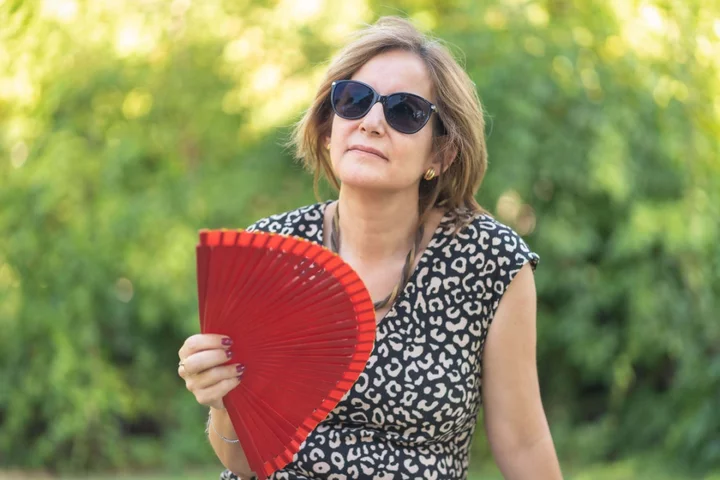
Struggling with menopause symptoms in the heat? An expert shares tips
Heatwaves can be uncomfortable at the best of times, but what if you’re already having hot flushes? Dr Naomi Potter, founder of Menopause Care and co-author of bestselling book, Menopausing, with Davina McCall, points out that eight in 10 people who go through menopause experience symptoms like hot flushes – a sudden surge of heat, often accompanied by redness and sweating. Night sweats and trouble sleeping are also common during perimenopause and menopause – not the sort of things you want to be dealing with when a heatwave hits. “The increasing temperatures can make hot flushes and night sweats worse, and make it harder to cool down when you do experience them,” says Potter, explaining that the lack of oestrogen associated with menopause affects the part of the brain that helps regulate body temperature. “If you’re already hot and sweaty, then having a night sweat or hot flush can just make everything worse and uncomfortable.” Here’s her advice for getting through the summer heatwaves… Travelling “Public transport can be awful at the best of times in the heat, especially when travelling on tubes, trains and buses where you’re cramped in, so if you experience a hot flush while travelling, it can be extremely unpleasant,” Potter says. “Try carrying water and a small fan, to give some comfort in these moments, if just for a short relief.” If you can, invest in a water bottle designed to keep liquids cold, so you’ll always have something cool to sip when you need to. Be drink savvy Speaking of drinks, Potter also suggests trying to limit alcohol, coffee and sugary beverages, especially if menopause symptoms are proving troublesome. Iced tea and water are ideal options. “During the summer, you’re more likely to be dehydrated, and alcohol, coffee and fizzy drinks worsen dehydration,” she explains. “So it’s worth bearing that in mind and staying hydrated with water.” Sleep Menopause might already be impacting your mood and energy levels, so sleepless nights can be a double whammy. “In the case of night sweats, you’ll often experience broken and interrupted sleep, which has a knock-on effect and impact on lifestyle and work the next day,” says Potter. “Create a cool sleeping environment by wearing light breathable bed clothes and have a spare by the bed in case you wake up sweaty, so you can change without having to properly wake up to find new clothes,” she suggests. Plus, a well-positioned bedroom fan will be your summer best friend. Dress light It goes without saying that clothing also affects temperature – so if hot flushes are bothering you, tweaking your wardrobe could certainly help. Potter suggests dressing in “lightweight, breathable fabrics” such as cotton or linen. Plus, a light pair of cycling shorts/long knickers under skirts and dresses can help massively with sweating and discomfort at this time of year. Get the right support Heatwave or no heatwave, menopause doesn’t have to mean suffering in silence and just soldiering on if symptoms are impacting you. “If somebody is having symptoms, then it is definitely worth seeing their GP because there’s lots that can be done,” says Potter. “And if you have a menopause-friendly workplace, it is definitely worth talking to [managers] because with recently headlines, many workplaces are much more supportive of the menopause. “I think it’s vital that conversations like this continue,” Potter adds. “Without speaking about experiences, then there is no way for people to realise that this is a normal life event, and there is help if it is required.” Storing HRT in the heat Finally, if you are taking hormone-replacement therapy (HRT), make sure it’s being stored correctly when temperatures soar. “Most HRT should be stored at room temperature. If this is the case with yours (it will say on the side of the packaging), do not refrigerate or freeze it. Instead, storing it in a cool dark place, away from direct light, should be fine,” says Potter. You will want to keep it away from excessive temperatures though – basically anywhere that can get particularly hot when it’s sunny, such as inside cars, on window ledges. “And aircraft holds,” Potter adds, “where temperatures are unknown and can rise rapidly.”
2023-06-14 18:48

Toff: Drinking mindfully is a gift to yourself
When you think back to Made In Chelsea’s heyday, it seemed to be all champagne, kisses, debauchery and parties. But Georgia Toffolo, 2017 Queen of the Jungle and close pal of Stanley Johnson, says she often wasn’t drinking champagne at all. “We were always photographed with glasses of champagne in our hands, but mine was normally a non-alcoholic version,” the 28-year-old explains. “I don’t know whether people really know this.” At that time, the nation’s relationship with alcohol was in the spotlight, and how well we looked after our wellbeing became more important. Things began to change around her, says Toffolo. “People became more aware of their habits – both negative and positive. And as I was in my early 20s, I was able to ride that wave. “My attitude to wellbeing has changed hugely. I try to get balance and moderation, which is a constant battle, whether I am looking at how I eat, drink, work, or exercise. In my early 20s, it was so manic and I tried to work all the hours God sent, so the theme of my mid-20s has been trying to find moderation,” she explains. That moderation has become pertinent to her drinking habits. “I am a mindful drinker. I have been drinking since I was 18, but over the past three years, I have really tried to be more mindful.” She’s not the only one. According to new research by Harrogate Spring Water, 61% of adults are intending to try drinking in moderation in the coming months – a campaign Toffolo is supporting by debuting a new 0% summer cocktail, The Royal Raspberry Spritz, at Royal Ascot on Tuesday, June 20, at The Harrogate Spring Water Mindful Drinking Bar. A lot of people, Toffolo says, “are interspersing alcoholic drinks with non-alcoholic drinks, which is exactly what I do. “Ascot is like my Christmas. I go every day of every year but it can be a really long week,” she explains. “People go racing for so many different reasons, but you want to be on flying form. I drink loads and loads of water, feel super hydrated and feel great the next day. I spruce it up with a bit of basil or elderflower.” And because she sticks to mindful drinking, hangovers are a thing of the past, says Toffolo. “It doesn’t feel like it’s a chore, it doesn’t feel like I am losing out on anything, it is a gift to yourself. My mindset and my relationship with alcohol is so much healthier.” Read More Charity boss speaks out over ‘traumatic’ encounter with royal aide Ukraine war’s heaviest fight rages in east - follow live Should you sleep naked? Heatwave myths debunked 7 hay fever hacks to ease your symptoms this summer The pests you really don’t want invading your garden and how to deter them
2023-06-14 16:22

Should you sleep naked? Heatwave myths debunked
It’s safe to say summer has officially started. Temperatures are now firmly above 25C across much of the UK, the sunshine is hotter, noses are stuffy and the air is muggy, sometimes making it difficult to sleep. Keeping cool in a heatwave is a priority – but it also gives rise to various theories and myths on how to achieve this… Sleeping naked cools you down Sleeping naked seems like the easiest and quickest way to cool your body temperature down after being out all day. But this isn’t necessarily the case, according to Abbas Kanani, a superintendent pharmacist at Chemist Click Online Pharmacy. “Sweat collects on the body and remains there when we have no clothes on,” Kanani explained. “Although having less layers on the body can help you to feel more comfortable in the heat, wearing lightweight nightwear made from breathable fabrics helps draw sweat away from your body and makes you feel a lot cooler and more comfortable.” So what should you wear at night to keep cool? “Clothing made from natural fabrics like cotton or linen are breathable and absorbent,” Kanani recommended. “They will soak the sweat up off your skin and they let air through, which cools you down.” People don’t die from heat in this country The UK sun can feel different compared to when you are sunbathing and drinking cocktails on a beach in Barcelona – but that can catch people out. “The biggest myth is that the weather in the UK isn’t hot enough to be dangerous,” said Dr Adam Staten, a clinical director at One Day Tests and NHS GP. “Whilst we don’t have that many really hot days, when it is hot, it can be fatal. For example, during the heatwave last summer, hundreds more people died than normal for that time in the year.” Staten suggests we overcomplicate things when trying to keep cool. “Most measures are really simple and include common sense measures like keeping curtains drawn, keeping windows open or taking cool showers or baths.” Sticking to hot drinks will keep you cool Who else thinks drinking tea or coffee in hot weather will cool you down? For Staten, “One myth that seems to come up a lot is that hot drinks are better for cooling you down than cold drinks. I think the evidence actually shows that it doesn’t really matter – as long as you are keeping hydrated, your drinks can be hot or cold.” Pharmacist Kanani agrees with that final point. “Hydration is vital for keeping cool in hot temperatures. Drink plenty of fluids, especially water, to stay hydrated. Avoid excessive consumption of caffeinated or alcoholic beverages as they can contribute to dehydration.” You only need to wear sunscreen when the sun’s out Another common misconception is thinking that you can’t get sunburnt when it is cloudy outside. “This isn’t true,” Kanani said. “Although it’s less likely than when you’re out in full sunshine, clouds don’t block all of the sun’s UV rays.” It’s also why people either only apply sunscreen in the morning or none at all. “Many people think that when sunscreen is waterproof, it means they do not need to reapply it after swimming or sweating. It should be reapplied straight after you have been in water, towel drying, sweating or when it may have rubbed off.” Sunburn is something to be careful of. Staten said: “It’s really common and can actually be very severe both in the short term and for the longer term risk of skin cancer.” Read More Charity boss speaks out over ‘traumatic’ encounter with royal aide Ukraine war’s heaviest fight rages in east - follow live 7 hay fever hacks to ease your symptoms this summer The pests you really don’t want invading your garden and how to deter them How to take care of your mental health at festivals
2023-06-13 22:51

7 hay fever hacks to ease your symptoms this summer
According to health officials, people sought advice for hay fever symptoms once every three seconds on Sunday. And today, the Met Office predicted the pollen count would be “very high” in most of England and Wales.Hay fever is usually at its worst between March and September – and right now, thousands of people affected are desperate for a solution to their pollen-induced runny noses, itchy eyes and tickly coughs, and other irritating symptoms. The hay fever pages on the NHS.uk website reportedly received 122,650 visits last week alone. So, what can you do to help with hay fever symptoms? 1. Don’t rub your eyes “Red, itchy, swollen eyes are often a real problem for hay fever sufferers,” explained pharmacist Sid Dajani, from Golden Eye Eye Care. “As tempting as it is, don’t rub your eyes. Clean them free of pollen frequently, with cotton lint and cold water, and treat the symptoms immediately with eye drops or eye ointment containing propamidine isetionate.”2. Don sunnies and keep your clothes cleanReducing your exposure to pollen, however possible, can really help. Dajani added: “Wear wrap-around sunglasses to protect your eyes when outside, and have a shower when you get in from work and put your clothes straight in the wash to help remove all pollen. It’s also best to avoid drying clothes outside.”3. Think about your diet What you eat may have an impact too. GP Dr Nisa Aslam suggested: “Stick to an anti-inflammatory diet, with plenty of fruit and vegetables, beans, grains and oily fish, whilst limiting processed food high in fat, sugar and salt. Look for anti-inflammatory, antioxidant herbs, like chamomile, ginger, nettle and turmeric. These can be consumed in the form of supplements or beverages.”4. Protect your nostrilsDr Adam Fox, allergist and advisor to Clarityn, said: “Pollen balms such as petroleum jelly rubbed around the rim of the nostrils can help trap pollen before it enters the nose, and salt water nasal sprays help rinse pollen particles out of the nose, preventing them from sitting in there and causing more symptoms.”5. Keep the windows shut As tempting as it may be to fling windows open at this time of year, Dijani said: “Keep windows, including car windows, and doors shut. Venture out as little as possible. Towns and cities are no more friendly to hay fever sufferers than the countryside, due in part to more extensive ‘greening’ of urban areas.” 6. Prepare for the pollen count Checking to see when the pollen is particularly high can help you prepare. “If you know you have symptoms every year, then it makes sense to be prepared in advance,” said Fox. “If you require a nasal spray, then starting to use it before the season starts will make it much more effective. For adults, these can be brought over the counter, whilst children will need a prescription.” 7. Stay in when the count is really high And if symptoms are still really getting to you? “Avoid going outside when the pollen count is at its highest – in the middle of the morning or the early evening,” said Dajani.
2023-06-13 20:52

How to take care of your mental health at festivals
Festival season is upon us, with Glastonbury taking place near the end of June. While we’re well versed in how to take care of our physical health at a festival (yes, you really should take a hat in case the sun comes out), what about the mental health side of things? Mike McAdam, 38, co-founded Blink Mental Health, which provides mental health support at festivals. After his mental health deteriorated in 2017, McAdam found his condition was too serious for primary care, but not extreme enough for secondary care. He accepts there are lots of brilliant charities and campaigns encouraging people – particularly men – to talk about their mental health and reach out if they need it, but “it’s incredibly difficult to get help”, he suggests. This is where the idea for Blink came from – the ultimate aim is to set up a ‘Blink Bank’ providing money for private therapy for those who are stuck on waiting lists. McAdam accepts that is “really ambitious and would cost millions”, so as a starting point, Blink provides wellbeing at festivals. Blink is going to six festivals this summer – including Boomtown and Wilderness – where it will set up dedicated tents which McAdam calls “a place to relax, get away from things [and] take your mind off the festival”, with bean bags and mindful activities such as colouring and jigsaw puzzles. Blink also offers between 12 and 18 hours a day of free talking therapy with fully qualified and accredited psychologists or psychotherapists. “It’s not just about diagnosed mental health conditions, everyone should look after [their] mental health,” McAdam says. He suggests festivals are a great place to open up conversations around mental health. “At festivals, people tend to explore new experiences – whether that’s food, music, dance or activities – so one reason we go to festivals is because people want to explore new experiences, [and] we find them more open-minded to talk and access therapy,” he says. Plus, he accepts festivals can be “full-on”, and don’t always have “that space where you can chill out”. While McAdam suggests early intervention is key when dealing with mental health, there are some things you can do to do yourself if you’re going to a festival this summer… Be prepared Before heading off to the festival, McAdam recommends being as prepared as possible. This could include “taking earplugs, a decent sleeping bag, making sure we have clothes for all weathers if we can”, he says. “Because if you can’t get a decent night’s sleep, if you’re absolutely freezing, that will affect your physical and mental health.” Lowri Dowthwaite-Walsh, senior lecturer in psychological interventions at UCLan, agrees with the importance of planning ahead. “If you have any vulnerabilities, such as pre-existing mental health difficulties or known triggers, plan ahead for how you can manage these,” she says. “By having a plan of what to do in the event of feeling low or anxious, you’ll be able to enjoy your time more and be more relaxed.” Stay well-fed and watered McAdam recommends taking a water bottle you can refill throughout the festival, and adds: “Try and eat regularly.” He suggests it can be “very, very easy to forget about eating or drinking [water]” at a festival, or you might not want to buy much food as it can be expensive on-site. However, taking your own snacks and bottle could go a long way to helping you be as comfortable as possible. Dowthwaite-Walsh adds: “Long days, warm weather and alcohol consumption can dehydrate you and this can lead to headaches, feeling fatigued and struggling to concentrate and make good decisions” – which means drinking plenty of water is crucial. Camp wisely “Try and camp with people you feel safe with,” is McAdam’s advice. And if you’re going to a festival with different options for camping – for example, Wilderness has a quiet camping area – choose the place that suits you best. If you’re going solo, McAdam says: “Try and find the area that may suit your needs.” Be drink and drug-aware “Alcohol and drugs have a direct impact on your mental health, so it’s important to discuss your choices with friends and people you trust. You can also get support from first responders at the festival if you have issues with any substances,” says Dowthwaite-Walsh. Take the pressure off “There’s a huge, huge thing about fear of missing out”, McAdam says. “They’re extremely exciting places, [with] so much going on. “There won’t be an opportunity to explore and see everything that you may want to, so as hard as it is, please do not try and put too much pressure on yourself trying to get around everything you want to see.” This could “burn you out and add additional stress”, he says, so McAdam recommends being “realistic about what you can see”. Stay connected If you are with friends, Dowthwaite-Walsh recommends staying connected. “Being able to enjoy yourself with friends helps to deepen the experience of a festival but also keeps you safe physically and psychologically,” she suggests. She also recommends living in the moment as much as you can. “Have fun, enjoy the moment and savour it. Taking pictures to share with family and friends is a great way to create memories, but also remember to live in the moment and soak up the full experience” Read More Charity boss speaks out over ‘traumatic’ encounter with royal aide Ukraine war’s heaviest fight rages in east - follow live 5 of the best lawnmowers How should we be talking to our daughters about money? STI cases at record highs: 6 things everyone needs to know about sexually transmitted infections
2023-06-13 15:55

I tried anti-bloating pills for two weeks, and now I know the gassy truth
Our bellies have always been the target of derision and ire. Long have they been poked and prodded. Sighed at and sucked in. Reprimanded and insulted. But ever since social media became the new WebMD for chronic self-diagnosers, it’s been open season on every little bodily function. Every involuntary twitch, skin bump and mood shift has been analysed to death – but none more so than the dreaded bloat. Stomach bloating can happen for all sorts of reasons. Often the main culprit is a big meal. It’s that feeling of being uncomfortably full and needing to undo the top button of your jeans, as if you’ve just had a particularly heavy Sunday roast. Unless you have real food intolerances or irritable bowel syndrome (IBS), or the symptom is caused by hormonal changes, bloating is the body’s normal reaction to eating a little too much. It usually subsides after a few hours. But this is 2023. A bit of bloating is no longer something you can just wait a few hours to get rid of – social media dictates that it needs to be gone immediately, and if it doesn’t then there must be something wrong with you. And not to stop there, either. You should also be cutting 10 different types of foods out of your life, doing five simple exercises 200 times a day and taking an assortment of supplements and pills because God forbid your stomach be round for the next two hours. According to Dr Tamara Alireza, a functional medicine specialist at Skinfluencer London, bloating should be taken seriously if it doesn’t come and go with food. If it becomes a chronic problem, or is accompanied by other symptoms such as persistent stomach and pelvic pain, changes to bowel habits, unexpected weight loss, fatigue and fever, vomiting, or bleeding, it may be something different entirely. “Excess bloating can be linked to IBS, inflammatory bowel disease (IBD), and coeliac disease, but also to more serious conditions,” she says. But we are a society obsessed with quick fixes, and anti-bloating pills have become a popular “cure” for the woes of a distended belly. Last month, fitness influencer Sam Cutler took it to new heights when she provided the pills for her wedding guests during the meal. Some viewers of her TikTok video – which sparked so much horror that it rapidly went viral – claimed that the pills were essentially “laxatives”. The glut of brands that have emerged in recent years would disagree, though. Many claim to use all-natural ingredients to “speed up digestion” and reduce gas without a laxative effect. Admittedly, curiosity got the better of me. I am lucky enough not to suffer from any particularly gut-churning conditions, but I do have eyes bigger than my stomach. It means I regularly end up regretting wearing trousers to a meal, cursing myself as my belly strains against the waistband. Could these pills really make me feel more comfortable after a big dinner, or would they just lead to some unfortunate toilet habits? I am kindly sent a couple of packs by Wild Dose, which lists extracts of ginger, liquorice, fennel seed, turmeric, peppermint leaf and dandelion root alongside a “proprietary enzyme complex” and a probiotic blend in each brown pill. They smell very herbal and are a rather unappealing greenish-brown colour – it initially makes me wonder if it’s an omen for what my guts are about to experience. After two weeks of taking them daily, I found that they did make a slight difference in my post-meal stupor and I feel comfortable quicker than before. However, the change has been marginal and, if anything, they made me more gassy, to the chagrin of my significant other. The medical community is reluctant to support the efficacy of similar supplements, as there remains little clinical research to back up their claims. Dr Alireza describes anti-bloat pills as a “Band-Aid on a fire hydrant” for people who have genuine problems with their gut. “I generally would not recommend taking any pills to counteract the bloating,” she says, “rather I would be keen to first determine the source of the issue.” She points to her practice, which aims to determine the root cause of symptoms and treat it – instead of providing temporary fixes. But I think the real reason behind social media’s obsession with bloating has nothing to do with #guthealth. Instead, it is our inherent fatphobia and fear of fatness that fuel this battle against the bloat. Are we so afraid of looking fat for even a couple of hours that we flock to pills and exercises with such abandon? Given the way people have fallen over themselves to get their hands on Ozempic, a drug intended to help diabetes patients but which has made a name for itself as a weight-loss miracle, it appears the answer is yes. It’s no mistake, either, that women are the primary targets for anti-bloating content online. Studies show that women are twice as likely to experience it as men, particularly during menstruation and menopause because of hormonal fluctuations. But the expectation for women to maintain at least the illusion of thinness at all times is also much higher. Many of us learned at an early age how to suck in our stomachs and – even as adults – keep them sucked in pretty much all day. As I write this, I realise that I’ve been subconsciously engaging my core muscles despite sitting behind a desk. No wonder the promise of no more bloating is so appealing, if it makes looking mildly smaller less of a chore. Joanna Dase, fitness expert and operations director of female-focused health clubs Curves, says that any medical conditions should be diagnosed by qualified professionals rather than social media. She acknowledges that while bloating can affect body image, no one should worry about your normal, natural responses to digestion. “If you have a professional opinion and there is no health problem related to it, then you just need to have an actual understanding of your body and its natural functions, and being OK with yourself. It’s just how your body breaks down food.” Read More Wellness gurus claim your hormones are out to get you – but is it just another scam? ‘Thanks Pfizer’: The weird world of shakes, health anxiety and illness online A One Direction fan claimed she had a brain tumour. Five years after her death, we still need answers How to protect pets from wildfire smoke amid air quality alert Gamer finds indent in head from prolonged headset use after shaving his hair From masks to AC units: All the dos and don’ts to keep safe from wildfire smoke
2023-06-08 13:52
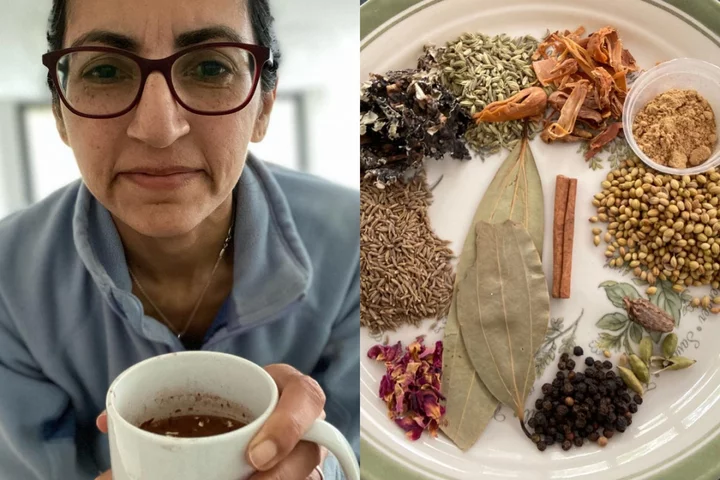
‘Covid killed my taste buds – then my business’
A cooking teacher who lost her sense of taste and smell and “never fully recovered” after catching Covid last summer has decided to shut her business because she can no longer gauge the quantity needed or quality of ingredients in her dishes. Raisa Ali, 51, said to continue teaching people how to cook Indian food would be like “the blind leading the blind” as her sense of taste and smell have never been the same since she caught Covid in July 2022. The mother-of-three, who lives in Kingston, south London, knew “something was missing” after her husband Akbar, 52, and her students found she was being heavy-handed with the spices but could not tell the difference. Raisa made the difficult decision to close her Sweet Sultry Spice cooking school after teaching a class how to make the Indian spice mix garam masala and realising that, while she knew the recipe from memory, she could not smell the pungent ingredients. Covid has “killed the joy of cooking” and dried up her source of income, but Raisa has now accepted what happened and is looking for a fresh start. Raisa, who has three sons, twins Zain and Zakir, 16, and Yusuf, 19, said: “I can’t dwell on this anymore and just have to move forward. “My main mode of cooking and learning and teaching has been to follow my nose. “I used to make my students take whiffs of everything at every stage. “I decided to close the school because when I lost my sense of taste and smell, my passion died. “Covid killed the most important part of food for me.” Raisa started giving cooking classes in her kitchen after completing a nutrition course in 2018 and taking advice from a friend. “I did a one-year nutrition course and started working online, trying to build a small business, but it wasn’t going anywhere and I was feeling very isolated,” she said. “A friend of mine came over and said ‘you’re doing it all wrong, why don’t you just open a cooking school’. “I was scared but she was like ‘feel the fear and just do it anyway.” She soon found herself giving two or three classes per week to groups of around five people for between £60 and £70, teaching them to cook Indian cuisine. “People would come over to my house and they wouldn’t leave – it was great,” said Raisa who moved to the UK in 2008 after her husband was transferred to the country for work. “It was a really great experience and then when it went away, I just thought now what am I going to do?” Just when her budding business started taking off, bringing in between £500 and £800 per month, Covid struck. “Suddenly Covid’s happening and from one day to the next the business totally died,” she said. “The income that I had was gone and everything that I had built was gone. “I spent that first year (2020) feeling sorry for myself.” Then while travelling back to her native California, in July 2022, Raisa caught Covid and spent two weeks in bed. “I spent the first two weeks in bed and then started to recover slowly,” she said. “When I came back, I had brain fog, I couldn’t smell things properly and I couldn’t taste things properly.” She noticed her taste buds were not firing on all cylinders after eating some tortilla chips which tasted like “cardboard”. “I’m eating them and thinking, I don’t understand, what is this?” she said. “And it has just never come back properly.” While Raisa started to recover after spending two weeks in bed, some of her symptoms lingered for months. Once lockdown rules lifted, Raisa went back to giving cooking classes, but it was not the same. In January 2023, while teaching a group how to make garam masala from scratch, Raisa’s sense of smell was put to the test. “When they could smell it across the room then I knew, at that point, that this wasn’t going to work for me because it would be like the blind leading the blind,” she said. “I remember telling my customers, look I’m telling you everything from memory and my past experience because I don’t have have my sense of taste and smell. “Isn’t that depressing?” On another occasion, she was cooking a chicken dish and a student asked about the ingredients but Raisa could not “taste anything”. “It turned out it was black pepper but I couldn’t even taste it,” she said. Her husband and children also started picking up on strong flavours which appeared relatively mild to her. “I knew something was missing because when I cooked things for my husband he would say ‘oh, you put a lot of this in’,” Raisa said. “But I could not tell the difference.” Even to this day, Raisa says she has not fully recovered her sense of taste and smell. “If I would sum it up, Covid killed the joy,” she said. “I just feel like I don’t want to bother anymore because I feel like my drive is gone. “So I decided, either I can be upset about it or I can reinvent myself again.” Raisa has decided to see her Covid nightmare as a positive step towards new beginnings. “If you are cooking something, you have to be able to smell and taste the ingredients and I knew I couldn’t do that so I decided it was time for a complete shift,” she said. She has not been to see a doctor about her long-lasting symptoms as she believes there are many other people who are “far worse off” and that the NHS already has “too much on its plate”. She is now looking to explore other business opportunities which do not rely on having a sense of taste and smell. “Sustainable living” is one area in which Raisa is particularly interested, but what this will look like in practice remains to be seen. “I want to get rid of my carbon footprint,” she said. “I don’t need to prove anything to anyone, it’s just what I want to do.” For more information about next steps, follow Raisa on Instagram. Read More Covid Inquiry could see unredacted Johnson WhatsApp messages despite legal clash I decide what’s relevant, says Covid inquiry chair in Boris WhatsApp row Covid Inquiry head making ‘no comment’ on legal row over Johnson messages Charity boss speaks out over ‘traumatic’ encounter with royal aide Ukraine war’s heaviest fight rages in east - follow live
2023-06-06 21:17
